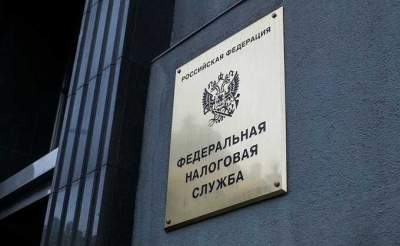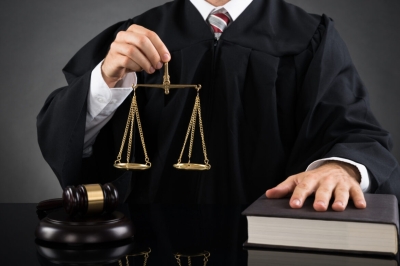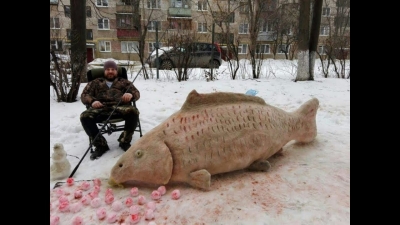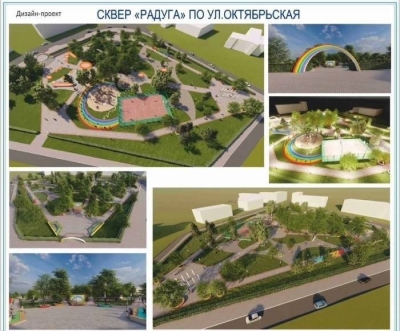Leonid Parfenov – about the patience of the Russian people, the recognition of the republics of Donbass and the anticipation of a big war
Journalist, TV presenter and writer Leonid Parfyonov presented the second film of his own documentary duology “Russian Georgians” at the Yeltsin Center.
The tape covers the period from 1941 to the present day. The premiere of a film about Georgia and Georgians in the USSR coincided with a severe crisis in Russia’s relations with Ukraine, another former Soviet republic. Znak.com asked Leonid Parfyonov about historical parallels, the recognition of the DPR and LPR, and the influence of Russians on the decisions of their leaders. The interview took place on the evening of February 23, a few hours before Russian President Vladimir Putin announced the start of a military operation in Ukraine.
– In the finale of “Russian Georgians” it is said: different peoples decided to go separately. The current agenda requires us to think about our other neighbors – the Ukrainians, as well as the residents of Donbass. So, Russians and Ukrainians are one people?
– Of course, not one people. I am not close to these imperial reflections about failed states, and how the borders were drawn. I understand with what horror it must have been listened to in Kazakhstan, [вспоминая] national-territorial division, which in Asia [в 1920–1930-е годы] happened. If you now remember where everything was: once Kazakhstan was an ASSR with its capital in Orenburg. Maybe they will then make claims that this is their former capital? Such conversations can lead far. These are very dangerous conversations at the present time.
And this proof of his innocence by force never ended in anything good.
We ourselves suffered the most from all Russian attempts at “imperialism”. The Russians suffered the most from the empire. It was a very strange empire in which the colonies adjoined the metropolis and, as a rule, lived better than the metropolis. In the metropolis, they paid extra for the “happiness” of owning their colonies.
– Also in your picture there is a fragment of the post-war speech of Stalin, where he notes the “patience” of the Russian people. Is this “patience” a consequence of the conscious policy of the authorities, or is such a policy generated by this “patience”?
– It is not clear where the egg is, and where the chicken is. But there is a given: whenever you see areas where the state does not rule, you see that we are enterprising people, very enterprising, rapidly catching up and behaving very liberally. Very European. Absolutely no herd instinct – “let’s get together in a common bunch and here we will be fine.” This is “everything is like people have it to be.” It was not for nothing that it was so played by Letov, and then played again by Noize MC.
Whenever there is an opportunity for initiative and self-realization, I always see that my compatriot behaves very proudly, with dignity and with absolutely no desire to repeat someone else’s rut and [исполнять] purpose. He is bold and wants his life script.
– How appropriate are public comparisons of the current situation with the situation before the Second World War?
These comparisons are lame. You see, in the Soviet Union – even during the arms race – the rhetoric was always for peace. She was probably sly, but try to sell the war to someone [тогда] didn’t even cross my mind: [убедить] that it might be good. Rhetoric in the spirit of “for the sake of peace on earth, let’s not leave a stone unturned” was then impossible. “If only there was no war” – I grew up only on this. [На том]that nothing could be worse than war.
And everyone is very respectful.
About America, as now, no Soviet propaganda spoke. There were some “someone on the banks of the Potomac rattling with rusty Cold War weapons,” but they were some unnamed [персоны]. But to speak so derogatoryly about the leaders of Western countries? This has never happened in the Soviet Union.
After all, this is to humiliate yourself: to speak in such a tone about the state leaders of the countries with which we have diplomatic relations, meetings. And the propaganda of that time was no less controlled than the current one. It is quite obvious that this was an attitude: yes, we criticize, there are some “hawks” … But in order to [к примеру] about Nixon [как сейчас о лидерах США] did you talk wildly? For some deputy of the Supreme Soviet of the USSR, for some reason, to dare to judge Nixon in the tone “you won’t spoil the porridge with butter, no matter how you call it, everything will be fine, and there’s nothing to be almondy about”?
“Russian Georgians shows how Georgia, even within the Soviet state, manages to maintain its subjectivity and remain Georgia. At the same time, the Russian people are actually deprived of political subjectivity. Why is this happening?
– Hard to say. Surprisingly, no one, no opposition has ever managed to combine the national liberation movement with the liberal movement, with freedom, with the possibilities of personal initiative, personal project. But these are the parts of our liberation: to free ourselves from imperial tasks, to focus on ourselves, to give people the opportunity to rise, build a life and show initiative as it manifests itself in all areas where we do not have a state. [В таких сферах] everything blooms beautifully.
There are, however, few such spheres. Every time after restaurants you think about what to call next. I always call restaurants and rap. The state is not included in them, and when they tried to write for the state – “I’ll slam a burger for Sobyanin” – it turned out that the genre itself rejects the possibilities of state propaganda within it.
It’s a question [о субъектности] to all of us. And everyone answers in their own way. But one thing is for sure. I know quite well the countries of Eastern Europe, parts of the republics of the former USSR, and I remember this connection well [либеральной идеологии и идеологии освобождения]: “We must return to ourselves, we must be the place of realization of our people – this is our liberation. Liberation from both the empire and “Sovietness” – because this also kept us bound, enslaved and did not allow us to take the initiative. Then we will be Estonians, when we take care of ourselves, we will rely only on our own strength and will not be tied to communism.”
[В России] this mood glimmered a little somewhere in 1991-92: “Thank God, we are on our own, we will take care of ourselves and we need to focus on ourselves.” But it passed very quickly. For some reason, the feeling of realizing oneself as an empire again prevailed, for which the tasks of the people’s welfare are somehow too mundane – after all, some more messianic ones are needed. [цели].
– Do “encouragement of initiative” and “implementation for everyone” require some kind of their own, new ideology or rejection of ideology in principle?
So this is the ideology. It will be formed by the sum of 140 million realized lives and into the power of the state, and into ideology, and into what this country means to the rest of the world. After all, every time the Russians come into some world business, they [привносят] something special. I have shown this many times in films and admired each time.
[Например]how Sergei Shchukin and Ivan Morozov felt the art of the turn of the century! What Europeans they were, with what vision – what visionaries they were, in modern terms! Shchukin was never wrong at all. All 264 paintings are masterpieces, he has never bought anything passable.
— Is the decision to recognize the DPR and LPR a “romantic” or pragmatic decision?




